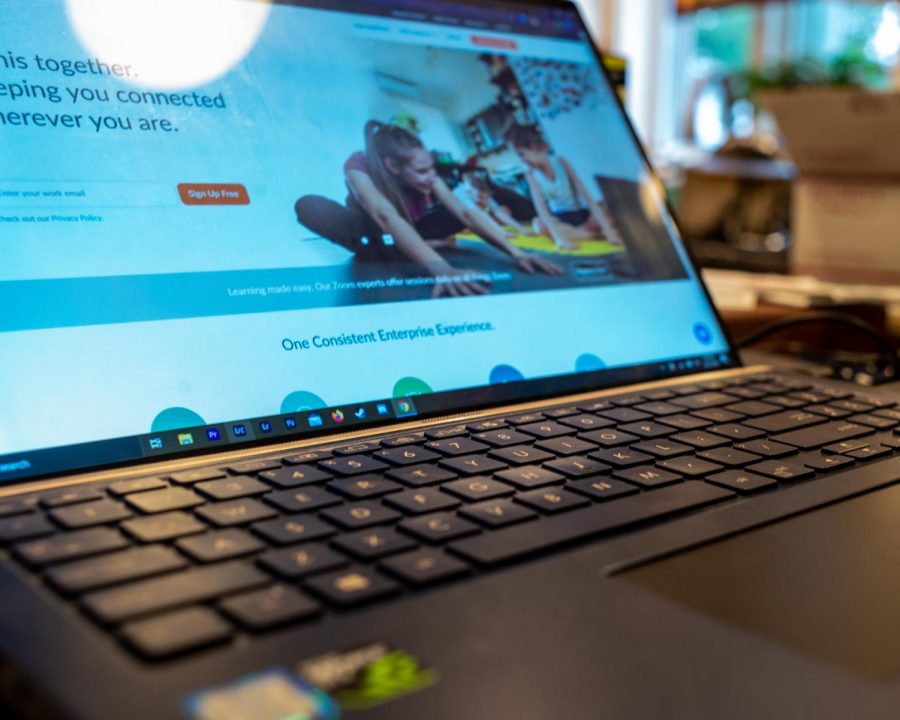Online classes are beginning to take a different form at UMass. A hybrid model – a course that takes place mainly online but meets one or twice a month – has started popping up in classes on campus.
This movement to the Internet is not an improved version of an existing classroom experience. Instead, classes that rely on Internet communication and online work degrade the nature of personal education that has proven (at least for me) to be the key to really absorbing course material.
According to the University of Massachusetts website, a Bay State resident pays $20,008 to attend UMass this year. For those of you who do not live in Massachusetts, you can add a little over $11,000 to that number. This amount is far too much to pay to be taught in a way that has little contact with professors or face-to-face interaction with peers.
Some of the most rewarding academic experiences I have gained at UMass have come from talking to professors and engaging in class discussions. In the business school, one of my courses spends much of its time discussing how businesses can position themselves for maximum effect. This class has been a favorite of mine. Its success is largely due to the interactive nature of the course. The professor guides his students through the methods of problem solving helping us reach answers ourselves. This is a teaching method that could never exist in an online dominant environment.
In the end, especially in upper level courses, the material is sophisticated and full of subtle complexities that make instant live feedback and debate essential.
One of the jobs of a professor is to get their students interested in their subject through teaching the material. A professor’s passion can help students spend the extra time getting to know the course information beyond what is required. A teacher’s excitement (hopefully) creates a classroom where students are not falling asleep and are personally engaged in the material.
This is why I would much rather gain my information from a professor than a textbook. I can instantly ask questions, take notes on what I think is important and weed out important facts from the filler. Moving a course to a mostly online format does little to garner interest in its subject, making the material forgettable in the long run.
This need for inspiration in our education is a more important part of college than we often give credit. When we graduate from UMass, we hope that we have gained enough skills to enter the workforce in an area of which we enjoy. Money is essential to lifelong comfort and happiness, but it is often college that provides people with a platform to better understand their passions. Online-based courses all too often provide you with unadulterated facts in a pre-made Power Point presentation.
Once your online professor has provided that pre-made Power Point, the B.S. often begins. Most of these courses require a “discussion” section where, on your own time, you are asked to post questions or make thoughtful additions on a pre-determined topic. In a classroom environment, discussion might take place in the way of a question and answer period run by the instructor.
I took a marketing course online a couple summers ago, where a discussion section was a part of the course. Students were required to make a small and very manageable number of online comments that would be graded. Once my first comment was given full-credit, I copied the successful format of this first entry and received high marks without much thought from that point on. The further along in the course, the more I realized that learning the material was a distant second priority to getting everything done just well enough for the professor to think it deserved a good grade.
I will admit, for a college student, there are some strengths to this hybrid online model of learning. I like completing discussions and coursework on my own time. Almost no one enjoys going to all of their classes and some of what’s offered at UMass is arguably a waste of time. This problem is a reason that so many professors have to deal with the chronic problem of students skipping.
In college, there is nothing out of the ordinary about skipping a few classes. The hybrid online course model does give some people the mentality that working on their own time without having to show up is enough to get by. This is never true in real life and should not be the culture of college learning.
There are benefits of online supplement; it can be quite beneficial to a quality learning experience. Having material online so students can revisit it and learn from past classes is helpful. For $20,000 a year, however, UMass owes the student body professors who teach courses every week.
Funds are down, budgets are tight, but education is the mission of this school. It should not be diluted by the excuse to use the Internet for work that professors should be doing themselves.
Michael Phillis is a Collegian columnist. He can be reached at [email protected].












